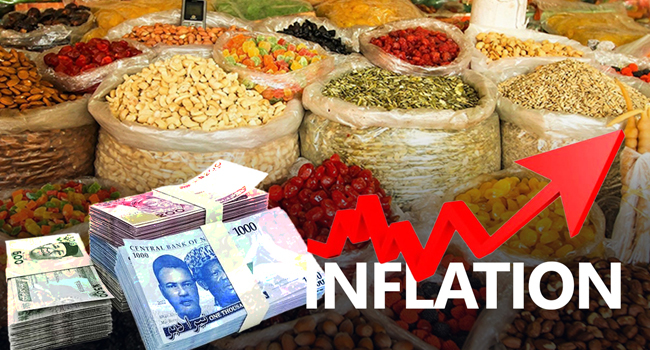IMPI Projects Inflation to Drop to 17% by December 2025
The Independent Media and Policy Initiative (IMPI) has projected that Nigeria’s inflation rate will decline to 17 percent by December 2025, signaling continued disinflation in the economy.
This projection follows recent data from the National Bureau of Statistics, which showed that headline inflation dropped to 20.12 percent in August, down from 21.88 percent in July.
In a policy statement released on Wednesday, IMPI called on the Central Bank of Nigeria’s Monetary Policy Committee (MPC) to consider lowering the benchmark interest rate at its upcoming meeting, citing the sustained dip in inflation.
Chairman of IMPI, Dr. Omoniyi Akinsiju, criticized those downplaying the impact of the inflation decline. “We have observed how some critics dismiss the falling inflation rate, insisting that it has had no meaningful effect on ordinary Nigerians. We believe this is a deliberate refusal to acknowledge the progress made by the federal administration. Empirically, the Nigerian economy has entered a disinflationary phase,” he said.
Dr. Akinsiju explained that disinflation refers to a temporary slowdown in the rate of inflation, noting that Nigeria has experienced a rare trend in 2025. Inflation dropped from 24.5 percent in January to 20.12 percent in August—a 17.5 percent reduction, representing the sharpest mid-year slowdown in over a decade.
He added that a 10-year data analysis shows 2025 stands out—alongside 2017 and 2018—as one of the few disinflationary years, compared to the inflationary trend observed between 2020 and 2024. “This year marks a turning point. For the first time in nearly a decade, Nigeria is experiencing a sustained and meaningful slowdown in consumer price growth,” he said.
IMPI identified three key drivers of this downward inflation trend. First, the Central Bank’s decision to maintain a high monetary policy rate at 27.50 percent has helped suppress credit demand and reduce speculative activity in the foreign exchange market. Second, improved foreign exchange inflows—boosted by oil sales, remittances, and non-oil exports—have stabilized the exchange rate. Third, better agricultural output and relative peace in food-producing regions have eased food price pressures.
At 20.12 percent, the inflation rate has already fallen below the Central Bank’s 21 percent target. With the current momentum, IMPI believes that inflation could reach 17 percent by December, approaching the federal government’s target of 15 percent. Dr. Akinsiju emphasized that achieving this goal would carry significant macroeconomic benefits, particularly for business costs, credit availability, and job creation.
He added that IMPI expects the Central Bank to begin loosening monetary policy, with a possible 50 basis-point cut in the policy rate at the next MPC meeting, and a cumulative 200 basis-point reduction by year-end. IMPI also forecasts a reduction in the cash reserve ratio for banks—from 50 percent to 35 percent—by December 2025. These adjustments, the group argued, would lower the cost of borrowing, support business expansion, and increase employment through improved access to credit and liquidity in the banking sector.
The think tank also highlighted signs of economic recovery, citing a sharp turnaround in the financial performance of major Nigerian companies. “The seven companies that reported a combined loss of N418 billion in Q1 2024 rebounded to a combined pre-tax profit of N289.8 billion in Q1 2025. By the end of Q2 2025, all consumer goods firms had returned to profitability, with a combined pre-tax profit of approximately N264 billion,” the statement said.
IMPI concluded that the earnings recovery reflects the positive effects of currency stability and internal cost adjustments. It described the shift as further evidence that the Nigerian economy is stabilizing, a view echoed by both domestic and international observers.




